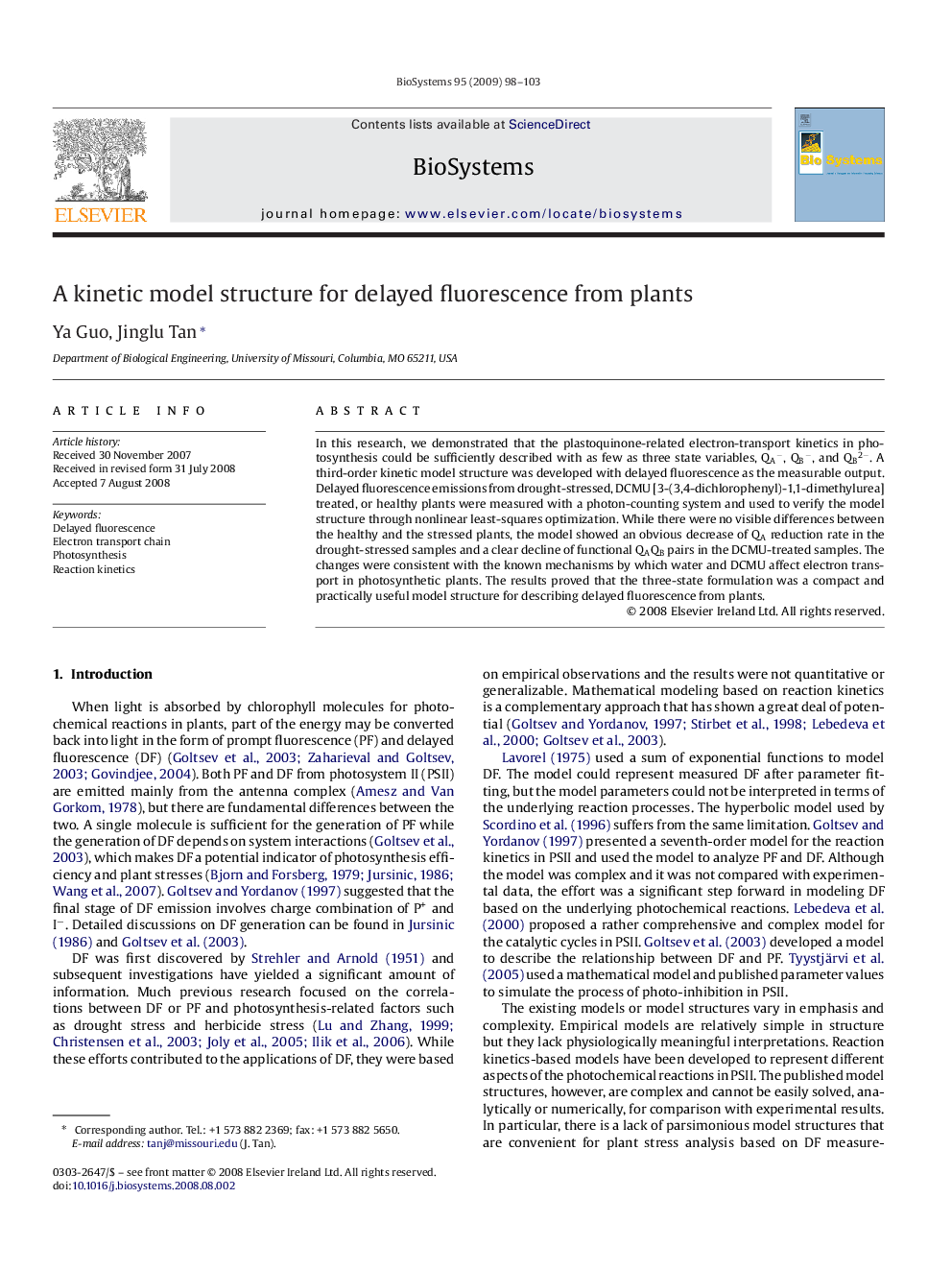| Article ID | Journal | Published Year | Pages | File Type |
|---|---|---|---|---|
| 2076603 | Biosystems | 2009 | 6 Pages |
Abstract
In this research, we demonstrated that the plastoquinone-related electron-transport kinetics in photosynthesis could be sufficiently described with as few as three state variables, QAâ, QBâ, and QB2â. A third-order kinetic model structure was developed with delayed fluorescence as the measurable output. Delayed fluorescence emissions from drought-stressed, DCMU [3-(3,4-dichlorophenyl)-1,1-dimethylurea] treated, or healthy plants were measured with a photon-counting system and used to verify the model structure through nonlinear least-squares optimization. While there were no visible differences between the healthy and the stressed plants, the model showed an obvious decrease of QA reduction rate in the drought-stressed samples and a clear decline of functional QAQB pairs in the DCMU-treated samples. The changes were consistent with the known mechanisms by which water and DCMU affect electron transport in photosynthetic plants. The results proved that the three-state formulation was a compact and practically useful model structure for describing delayed fluorescence from plants.
Related Topics
Physical Sciences and Engineering
Mathematics
Modelling and Simulation
Authors
Ya Guo, Jinglu Tan,
